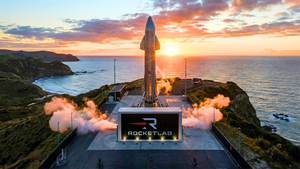Introduction:
Every founder begins their journey wearing multiple hats, strategist, marketer, operations manager, and even customer service representative. In the early stages, leadership is defined by action, intuition, and the sheer will to keep things moving forward. But as the business grows, what once worked starts to break down. Scaling demands a fundamental evolution, not just in business models or processes, but in the way leaders think, decide, and delegate.
The evolution of leadership from startup to scale is not a straight path. It involves unlearning habits that once brought success, redefining roles, and developing trust in both people and systems. Founders must move from being the “doer” to the “designer” of systems, from managing tasks to managing outcomes, and from leading with control to leading with clarity. The stories of seasoned founders reveal a common truth, growth demands transformation not only in structure but also in mindset.
From Doing It All to Building Systems
“In the beginning, I ran every part of the business myself—literally blending, bottling, labeling, and shipping each product from my kitchen... The turning point came when I transitioned from hand making products to working with a contract manufacturer.”- Jessica Rich Founder of Bona Dea Naturals
Jessica Rich’s journey embodies the emotional difficulty of detachment. Her leadership transformation was driven by necessity. What once worked, doing everything personally, became unsustainable. By letting go, she discovered the power of structured systems and specialized teams. This evolution not only enhanced efficiency but allowed her to focus on long-term strategy, brand vision, and sustainable growth.
Her story reflects a vital truth in leadership evolution: passion is the spark, but structure is the engine. Effective leaders channel their dedication into scalable processes rather than individual effort. Over time, Jessica’s shift from perfectionism to collaboration demonstrates that leadership maturity lies in guiding others to perform their best work while maintaining shared values.
Building a Strong Core Team as the Foundation of Growth
“About 150,000 new businesses start every day, and surviving is not easy… the main reason we grew from 10 to over 50 people in five years is the strong core team I started with.”- Andranik Minasyan CEO of inoRain
Andranik Minasyan’s reflection highlights the essence of sustainable scaling, building the right team before growth accelerates. In the startup phase, founders often rely on close collaboration and shared energy, but long-term stability comes from structure. Minasyan’s focus on cultivating strong managers allowed him to shift from micromanaging to mentoring, from individual oversight to organized leadership through delegation.
The ability to build and trust a core team transforms leadership from an individual sport to a collective one. Leaders who empower mid-level managers create a cascade of accountability and innovation throughout the organization. The business no longer depends on one person’s direction but thrives on shared understanding and coordinated execution.
Shifting from Problem Solver to Enabler
J R Farris, President and CEO of Accountalent described his greatest shift as moving from being the problem solver to the enabler. Early on, he reviewed dozens of client cases weekly, a hands-on habit that became unsustainable. When his team grew to over fifty, he had to create systems and depend on department heads. This change increased productivity by 35% and doubled client satisfaction in three years.
Leadership maturity is defined by trust in systems and people. Farris’s transformation shows that effective leaders enable rather than control. They design structures that guide action instead of dictating every move. By introducing formal communication rituals, dashboards, and feedback cycles, he built clarity across the organization. Leadership evolved from reactionary management to proactive alignment.
From Firefighting to Strategy
“The most important change was from a reactive approach to a proactive approach… I had to quit putting out one fire at a time and start operating a fire department.” - Mark Friend Company Director of Classroom365
Mark Friend’s evolution reflects one of the most critical shifts in leadership thinking. Early-stage founders spend much of their time responding to crises, fixing problems, satisfying clients, and handling emergencies. But sustainable leadership means designing systems that prevent fires before they start. By leveraging data and setting predictive policies, Friend moved from chaos to strategy.
This mindset transformation redefines what leadership looks like in scaling organizations. Friend’s move from tactical problem-solving to policy-driven governance not only saved time but also reinforced the culture of accountability. The role of a leader transitions from reaction to anticipation, a mark of maturity in any growing company.
Managing Outcomes Instead of Tasks
Arthur Zargaryan, Co-Founder and CEO of Parcel Tracker leadership journey demonstrates the transition from control to trust. In the early phase, his motto was “do everything and move fast.” However, as his company grew, this speed turned into confusion. The solution came when he stopped managing tasks and started managing outcomes, trusting his team with full ownership of results.
By giving autonomy with accountability, Zargaryan fostered a culture of responsibility. Structured communication through weekly syncs and documented updates replaced the chaos of ad-hoc messaging. The result was clarity, alignment, and efficiency. His experience underlines that scaling leadership means creating conditions where people can deliver without constant oversight.
Leading Less Guiding More
Joel Lim of Becoin.Net insight encapsulates a powerful shift in mindset: “Leadership isn’t about control, it’s about clarity and trust.” As his company grew, Lim realized that constant involvement in every decision was counterproductive. His evolution centered on designing systems over supervision, setting transparent goals, and empowering team leads to act independently.
This transformation built a culture of ownership and trust across his team. Progress accelerated, delivery improved, and innovation flourished because employees felt empowered to make decisions. The most important lesson Lim learned was that scaling a business requires scaling the leader’s ability to delegate, listen, and adapt faster than the company itself.
Transforming From Hero Work to System Work
Sean M Clancy, Managing Director of SEO Gold Coast leadership journey moved from “hero work to system work.” His initial approach involved fighting fires and holding all decision-making power, which slowed growth. The breakthrough came when he built “decision ladders,” delegating authority across levels. This shift allowed predictable delivery and reduced burnout across his growing team.
By introducing structured systems like R.A.C.I matrices, weekly scorecards, and feedback rituals, Clancy transformed chaos into coordination. His measurable outcomes, such as a 31.8% reduction in rework and 29.4% revenue growth per employee, proved that scalable systems lead to scalable success. Leadership evolution here was data-driven and operationally precise, turning human chaos into organized excellence.
Empowering Others to Lead
“When I started Tradesmen Agency, my leadership style was all about doing everything myself… but as we scaled, I learned that true growth happens when you empower others to lead too.” - Forrest Webber
Forrest Webber’s insight captures a universal leadership truth: empowerment multiplies impact. Founders who insist on controlling everything eventually stifle their company’s potential. By shifting his focus toward mentorship, systems, and trust, Webber transformed his agency into a collaborative ecosystem rather than a top-down operation.
Empowerment creates room for innovation. When employees feel trusted to lead, they become more accountable and creative. Leadership at scale becomes about setting the direction and ensuring alignment, not monitoring every detail. Webber’s approach demonstrates how stepping back can propel an organization forward.
From Control to Empowerment
Danish Qureshi General Manager at SEOHUB journey reveals how clarity and empowerment outperform speed. His early leadership was deeply involved, reviewing every detail. But as his team expanded, he recognized that micromanagement limited progress. The turning point came when he began emphasizing empowerment, documentation, and structured systems over impulsive decisions.
Qureshi’s emphasis on clarity transformed his organization’s culture. By focusing on systems and mentoring rather than control, he cultivated creativity and accountability. His story underscores that leadership evolution is as much about listening as it is about leading, a balance of empathy and expectation that fosters innovation and trust.
Learning to Step Back to Move Forward
David Kemmerer, Co-Founder and CEO of CoinLedger leadership transformation centers on unlearning control. In the early days, he led by doing, fixing problems and solving issues alongside his team. But as CoinLedger grew, this involvement became a bottleneck. The true shift came when he learned to step back, listen, and create space for others to lead.
This evolution required discomfort and patience. Allowing others to make mistakes built their confidence and strengthened the company’s independence. Over time, Kemmerer’s leadership moved from constant presence to intentional absence, trusting his team to take ownership. His story illustrates the courage it takes to evolve from a startup founder into a scaling leader.
From Builder to Enabler
“When I started Corcava, I was deeply involved in every detail of product development… but as we scaled, I learned that my leadership needed to evolve from builder to enabler.” - Gregory Shein CEO of Corcava
Gregory Shein’s journey demonstrates how modern leadership is rooted in autonomy and visibility. By designing flexible systems that empowered teams to make independent decisions, Shein fostered accountability and speed. This trust-driven model cut decision bottlenecks in half and increased productivity by 37%.
The greatest insight from Shein’s leadership evolution is that scalable organizations mirror scalable software, transparent, structured, and flexible. By building accountability into systems, leaders can enable autonomy without sacrificing control. It’s a powerful balance that defines the next generation of tech leadership.
Creating Frameworks Instead of Managing Tasks
“When we scaled past $20 million in revenue, my hands-on leadership became the biggest bottleneck… that data forced me to rethink what leadership meant—not control, but clarity.” - Meyr Aviv Founder and CEO of iMoving
Meyr Aviv’s leadership evolution underscores how scaling requires a mindset of systems over supervision. His “Move Smart, Not Hard” pilot project proved that automation and trust-based delegation could outperform constant monitoring. By replacing task management with frameworks, he built a culture of decentralized accountability that supported exponential growth.
Aviv’s journey emphasizes that great leaders don’t just grow companies, they grow capacity. By structuring decision-making processes and empowering teams, he freed himself to focus on strategy, innovation, and long-term culture building. This is the mark of a leader ready to guide, not just manage, scale.
Designing Processes That Scale
Reem Khatib, Partner at Tax Law Advocates leadership story shows how structured systems can transform both team performance and client outcomes. By implementing standardized workflows, her firm reduced case complexity and improved client results, cutting liabilities while maintaining operational balance.
Her insight, that leadership is about designing processes, not directing people, captures the essence of scaling. Predictable systems create trust and efficiency, allowing leaders to focus on vision and strategy. Khatib’s evolution represents a shift from personal control to process-driven success.
Empowering Teams Through Data and Automation
James Mitchell CEO of Workshop Software leadership journey reveals how automation reshapes management. By introducing digital workflows and client communication tools, his company improved repeat bookings by 20% while freeing him to focus on growth strategy. The transformation from manual management to data-driven systems illustrates how technology enables scalable leadership.
Leadership at scale requires transparency and measurable accountability. Data becomes the language of trust, allowing teams to self-regulate and leaders to make informed decisions. Mitchell’s transition from founder to strategic leader demonstrates that scalable systems and clear metrics are the foundation of empowered teams.
Key Traits of Founders Who Scale Successfully:
- Emotional Intelligence: The ability to lead with empathy and adaptability through uncertainty.
- System Thinking: Building structures that support repeatable, measurable outcomes.
- Delegation Mastery: Empowering others to take ownership without constant oversight.
- Clarity in Communication: Ensuring everyone understands the mission and expectations.
- Continuous Learning: Adapting leadership practices as the company environment changes.
These traits define the difference between founders who stay small and those who scale sustainably.
Conclusion:
Leadership evolution is not a one-time event, it’s a continuous process of growth, reflection, and adaptation. The stories shared by these founders demonstrate that scaling a business is as much about internal transformation as it is about external expansion. The journey from startup to scale redefines leadership from control to clarity, from execution to enablement, and from doing to designing.
As organizations expand, the role of the founder changes fundamentally. Success depends on the ability to trust others, build systems, and communicate vision with precision. The most effective leaders are those who can let go without losing direction, those who lead not by doing everything themselves, but by empowering others to do great work. The true measure of evolved leadership is when the company grows stronger without the founder needing to be everywhere at once.





